In the context of restraint prevention, the SPDC hospital department of San Filippo Neri of Asl Roma 1, in collaboration with the International Foundation Don Luigi Di Liegro, proposes a pilot project aimed at building a network pathway against isolation that can help hospitalized people better cope with an inherently complex situation.
The project includes the activation of a process that is not exclusively medical but also social and supports relational skills and personal effectiveness, respecting the condition of fragility of the participants and enhancing their resources. Through art-mediated communication (music, painting, manual work objects, writing and reading, body movement, etc.), exchange becomes possible, and the professional acts as a mediator of interpersonal communication in the group.
The content and form of the workshops were designed and chosen to promote socialization among participants, listening, and mutual recognition, respecting each individual's space and the free choice not to participate or simply to observe, depending on the participants' feelings. The aim is to foster an atmosphere of harmony and mutual acceptance as much as possible.
Each meeting is complete in itself, considering that the composition of the group is continuously changing. Users are given the freedom to participate or not, as they choose, each time.
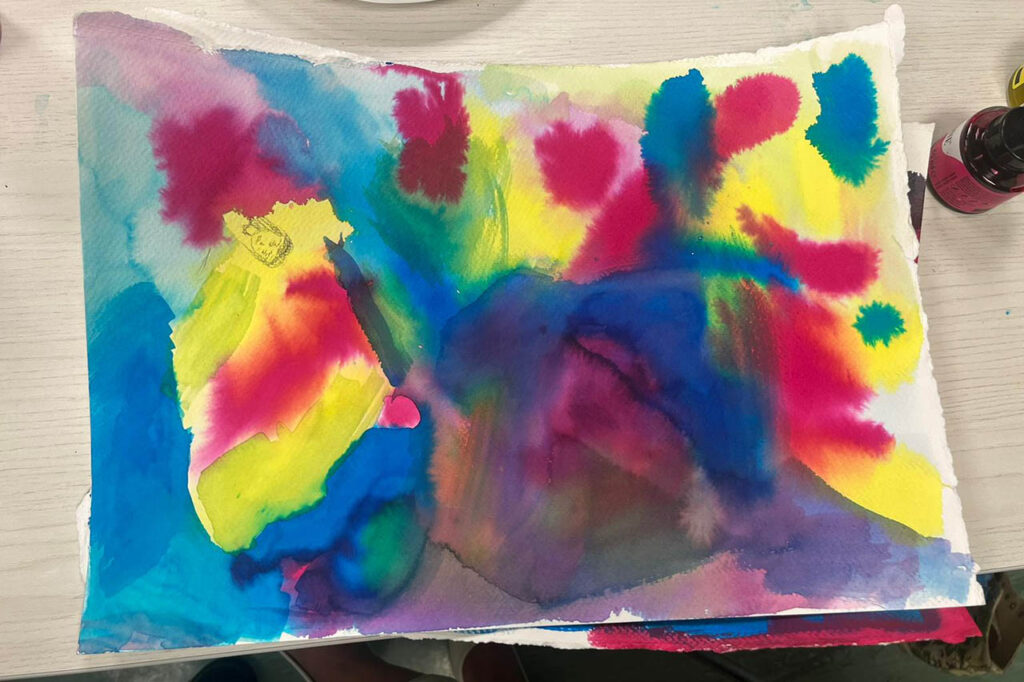
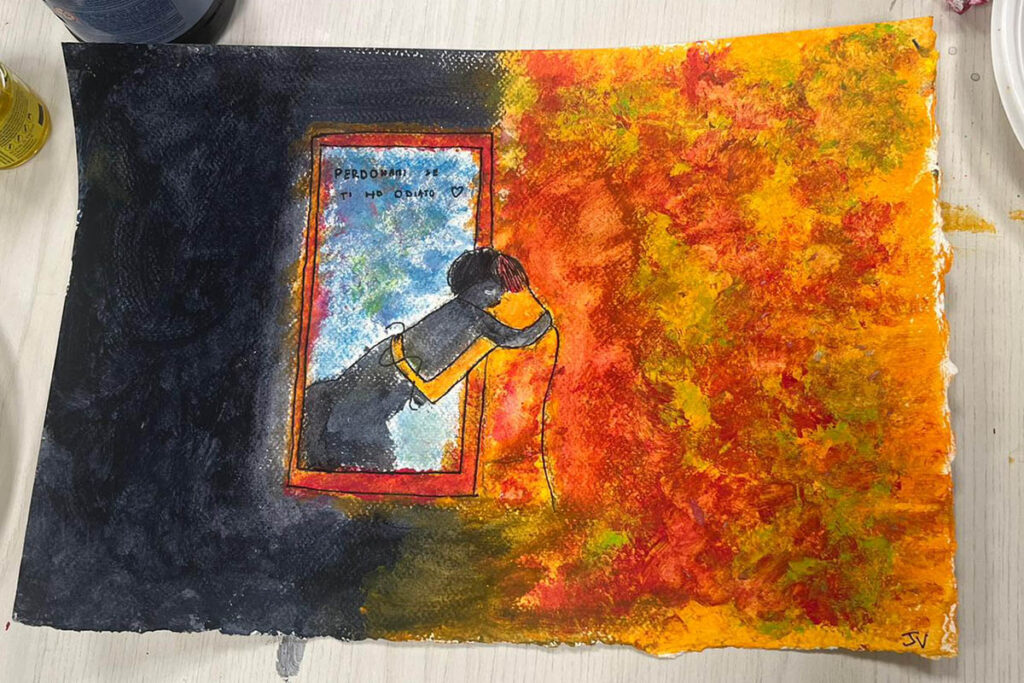
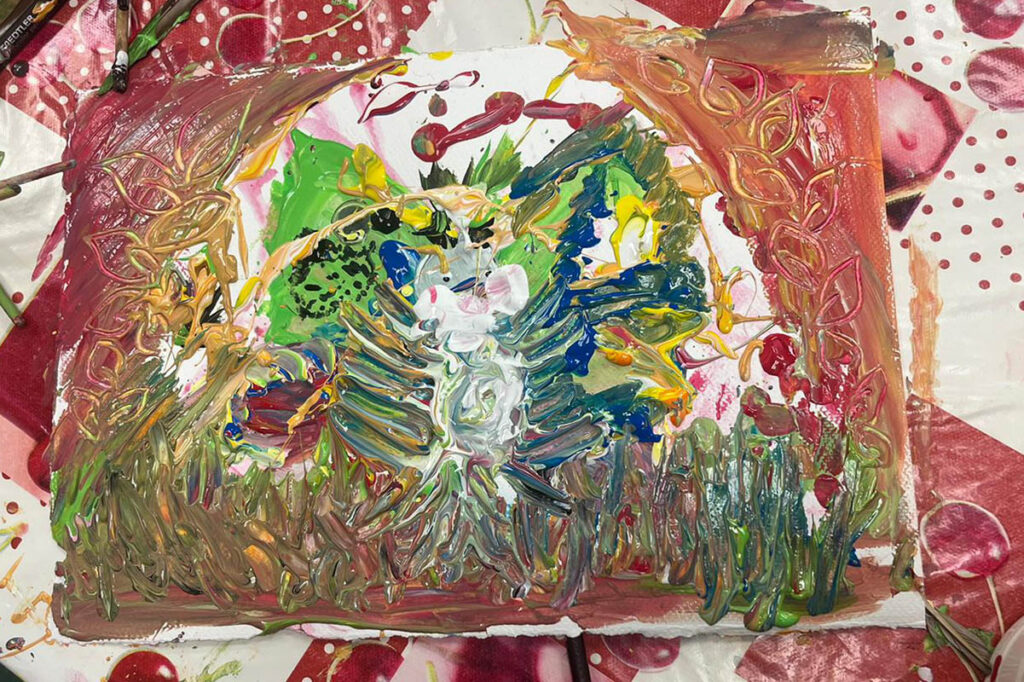

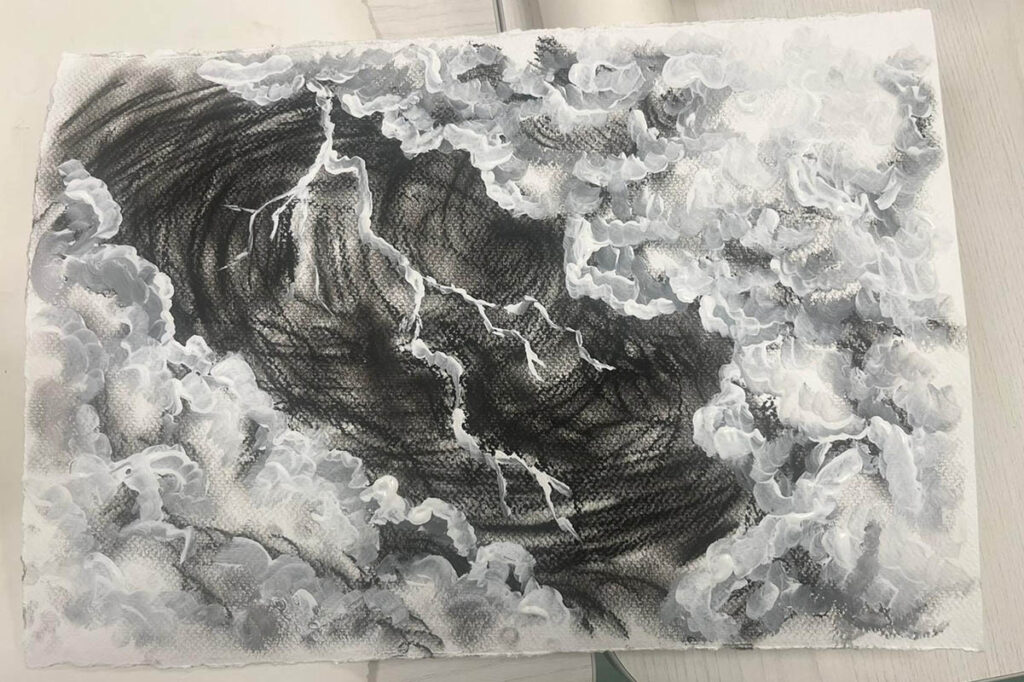
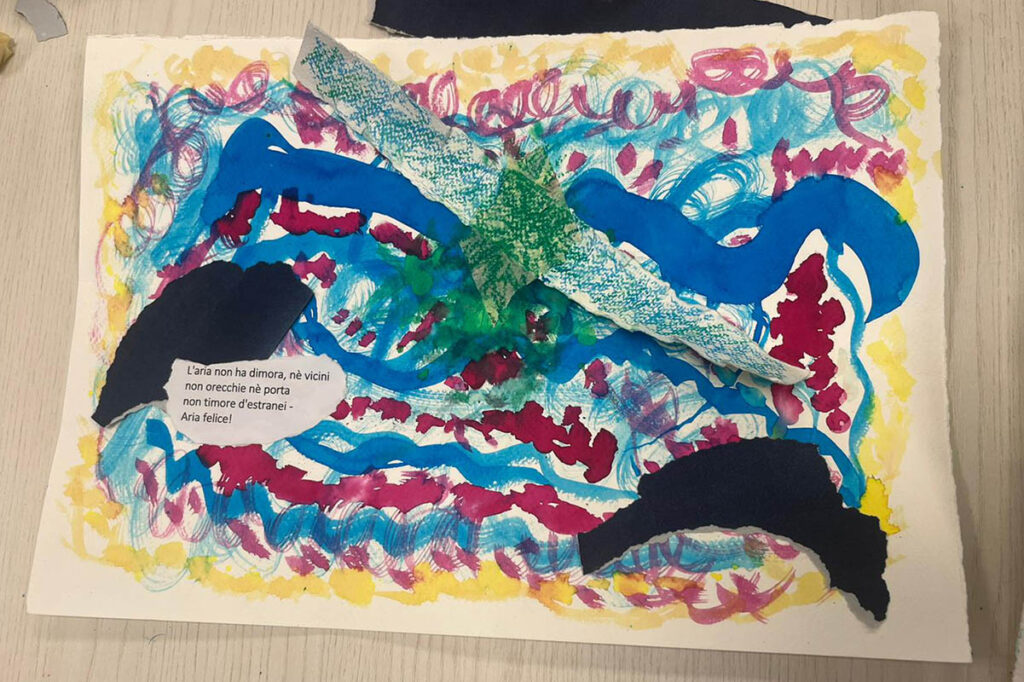
The Art4Me project connects mental health and art and aims to create a unique opportunity to provide a new platform for sharing knowledge across borders and stakeholders, and a path for better citizen empowerment with or at risk of having mental health problems. A long series of new tools is therefore needed to address mental health. While art and creative expression have been a central element of European culture for millennia, the use of art as a tool for mental health has been poorly mapped and experiences often not shared.
The project aims to:
In order to prevent isolation and social marginalization, the project proposes the activation of a listening and assistance service in the area, which provides information on mental health services, orients users and supports them in defining a personalized project with territorial services.
To raise awareness among citizens about mental health, the project organizes training courses, information and annual conferences on topics such as Recovery and addictions. The training objectives include the creation of a group of volunteers to facilitate the social inclusion and therapeutic path of people with mental distress through socialization workshops, such as theatre, music, photography and art therapy.
In order to combat the loneliness of family members of people with mental health problems, the project promotes self-help groups with weekly meetings and monthly supervision by professionals, such as psychiatrists and psychologists, to provide supportive support and share experiences.
The project is conceived following a Recovery approach, which aims to give users an active role again, transforming them from passive recipients to protagonists involved in their own choices and committed to fully developing their potential.
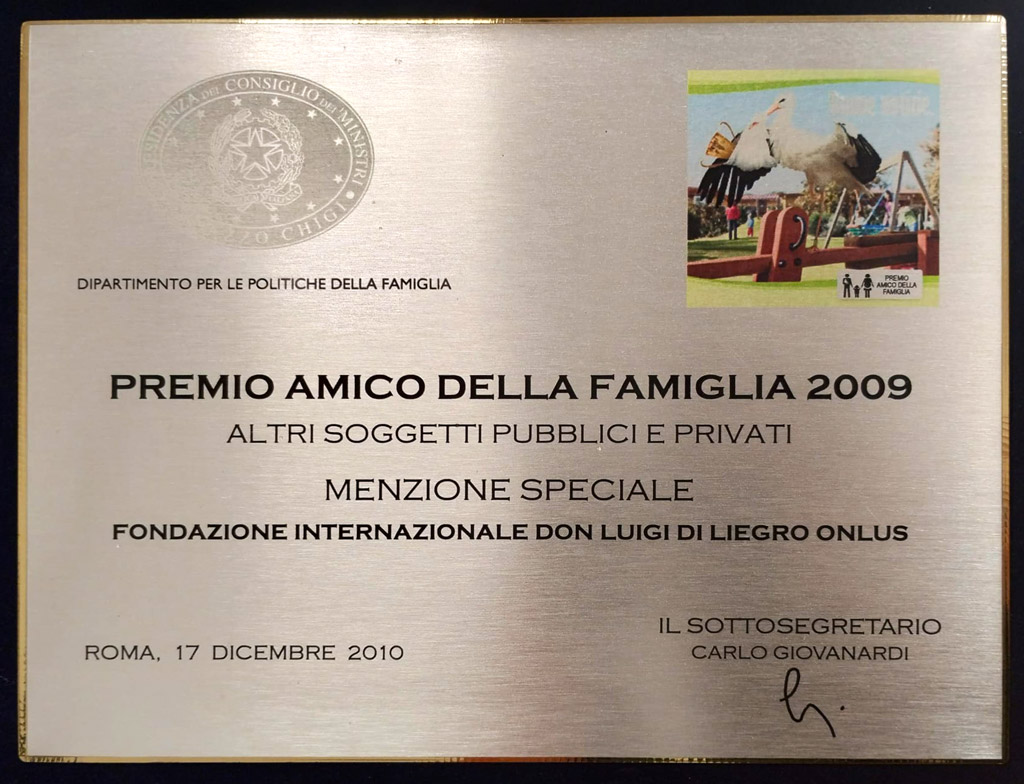
The area of intervention of the project was mainly the ASL Roma 2 area, but it was aimed at citizens of the entire territory of Rome Capital. The project allowed a broad involvement of users, family members, citizens and institutions. The activities implemented largely represent examples of replicable good practices and an example of civic participation, empowerment and social inclusion of isolated or people in difficulty. The activities are free for participants, open to all citizens, supported by a monitoring system and the use of systems to protect individual privacy.
Good practices in the field of mental health certainly emerged from the project activities, such as the effectiveness restored to people with discomfort through the creation of inclusive socialization spaces. In fact, often in mental health services laboratory activities are exclusive to those with a psychiatric diagnosis and people risk being ghettoized and self-excluding themselves. Supporting not only professionalizing activities with art masters but also socialization with volunteers and non-clinical operators allows for better use of the tool e.g. artistic in favor of rehabilitation and the acquisition of safety by the person. Another good practice is to encourage the meeting of family members of users who come from different contexts: through discussion and networking between people who face the same caregiving difficulties it is certainly an element of help for the whole family and the valorisation of resources .
The effects of Covid on children and young people, between social distancing, loss of routine, anxiety and uncertainty linked to the disease, up to the fear of parents and the difficulties generated by distance learning have made it necessary to intervene on the emotional and social sphere of students, especially on those in middle school classes, who started secondary school shortly before the start of the pandemic.
The project is based on the approach ofpeer education, an effective strategy for preventing and promoting mental health. By involving students, teachers and psychologists, the goal is improve the psychophysical and relational well-being of children, enhancing self-esteem, confidence and sense of security. Peer education, which involves the horizontal transmission of knowledge within a group, then promotes exchange between classmates, offering support between peers.
Each class develops a path during 10 group meetings lasting 2 hours each, scheduled 2 weeks apart.
The focus is on development of emotional and social skills such as the knowledge and regulation of emotions, the ability to take on the other's point of view, empathy, self-efficacy, assertive communication, which are the basis of functional and inclusive inter-personal relationships.
The practical approach, with activities such as role-playing, focus-groups and the use of mindfulness techniques, is integrated with cognitive reflection to promote group cohesion and psychosocial well-being.
Thanks to the positive relational climate built, the children deal with issues such as body acceptance, sexual orientation, sharing some complex life experiences, difficult communication with the adult world and perceived judgement, self-esteem and valorisation. of himself.
IncluPsy is a project funded with support from the European Commission which aims to promote the social inclusion of people living with mental disorders. There are 6 partners (coming from five different European countries) called to discuss and exchange their experiences in order to strengthen their capabilities and define good practices on the topic.
With Inclupsy we also want to increase the awareness and the involvement on the topic of a larger number of actors on the topic of social inclusion. In fact, according to the World Health Organization, one in four Europeans suffers from mental illnesses.
The report "Health at a Glance: Europe", created by the European Commission and the Organization for Economic Co-operation and Development, highlights how mental distress is one of the most urgent issues to be addressed and warns of economic and social consequences of the problem.
People with severe and persistent mental disorders generally suffer from a great sense of isolation, the loss of the ability to undertake initiatives and live in independent housing, hold a job and carry out normal daily activities.
These effects, combined with the stigmatization and, in certain cases, prolonged and repeated psychiatric hospitalizations themselves become a factor of social disintegration, leading people to lose their homes, wander the streets and be excluded.
In light of the links (as cause or consequence) between mental disorders and social exclusion, it is not surprising that inclusion is one of Europe's priorities. But What practices are implemented by Europe to promote the social inclusion of people living with mental disorders? This question is the underlying theme of the IncluPsy project.
Go to site by IncluPsy.
Young Europeans they are faced with increasingly difficult conditions on a daily basis: from complicated access to the world of work to parents' expectations, up to the paradox of the internet and social media, which connect and separate at the same time.
A greater number of young people exhibits symptoms of mental distress, such as high stress, anxiety, depression, addictions. making it harder to build your life plan and find your place in the world.
For this reason, the European Union promoted a new Strategy on the topic in 2018. One of the objectives identified concerns "Mental health and well-being", aimed at promoting the social inclusion of all young people, improving their mental well-being and eliminating stigmatization towards them.
This project fits into this framework by investing in training and recognition of the skills of employees Youth Workers who have the task of guide and support young people in their development personal, social and educational helping them to achieve and express their full potential in society. Youth workers, by learning a series of skills ranging from emotional intelligence to self-awareness, to time management and coping with external pressure, play a key role, with teachers and other professionals, in providing training for young people on mental health problems and on building emotions and dealing with mental health.
Serious mental disorders that can compromise parenting ability. In the research conducted, children frequently report experiences of neglect and abuse, feelings of fear or danger due to the psychiatric symptoms of their parents for whom they are "forced" to become caregivers.
The data and research on this condition are fragmented and too often incomplete, but they provide a dramatic picture. In 2004 (Nicholson et al.) reported that the 67% of women and the 75% of men experiencing conditions of serious mental distress (including schizophrenia, bipolar disorders, severe depression) are parents.
Furthermore, the interaction between genetics and environment in combination with high exposure to emotional stress represents a risk factor for children (both minors and adults) to develop psychiatric problems in the future.
Hence the need to raise awareness and inform civil society on the topic and to focus on concrete tools to support the children of parents with mental health problems. The project therefore worked, thanks to the collaboration of partners from different countries (Belgium, Greece, Italy and Turkey), on sharing good practices on advocacy strategies and promoting a change in policies at national and EU level. The main recipients of the information and awareness actions, in addition to mental health professionals, were family caregivers: to orient them to the support services of mental health services and to promote the exchange of experiences and mutual help.
The project was based on the belief that a more welcoming and inclusive society responds more effectively to the many critical issues arising from mental distress. Work, in this sense, represents a fundamental piece in everyone's life and an essential step towards building an autonomous and more fulfilling life.
Over the two years of the project's life, the people involved were included in modular paths which included various actions including: orientation and assessment of skills; empowerment interventions, self-promotion, social inclusion; accompaniment, tutoring and exploration of training and work opportunities; psychological support; family support and counseling.
An individual project was developed for each person taken care of, starting from each person's skills and resources. Comparison and dialogue within professionalizing and expressive workshops was one of the strong elements of the project.
Over 60% of the participants took part in training internships, which in some cases were transformed into actual employment contracts.
From the experience of the "Getting in motion" project, various initiatives on workplace inclusion have arisen over time, also thanks to information and awareness-raising actions in the public and private world on mental health problems.
The Project is recognized at European level within the Erasmus+ programme, through which the European Commission wants to encourage joint work between partners from different countries, to build an integrated path towards a quality of life that facilitates well-being and social inclusion , against stigma and marginalization.
A strategic program for the European Community, if we consider that mental disorders affect approximately 27% (83m.) of European citizens annually (European Social Work, 2013).
HERO - sharing the know-how of various EU countries relating to the social inclusion of people with serious mental distress, training methods and consolidated practice in the housing sector - aims to study what makes a place or which makes it a source of well-being, not only for users, but also for their family members, operators and citizens. Places that must be interconnected, permeable, habitable and modifiable. Where everyone can feel welcomed as a person, not characterized or stigmatized. Where everyone can recognize that mental health (and not only) is a heritage that concerns everyone and can be achieved if everyone is involved.
By housing we mean a process that favors the transition from the helping relationship to social inclusion. Numerous studies have shown how "community-based" services obtain better results in terms of treatment compliance, clinical symptoms, quality of life, housing stability and rehabilitation, compared to other models of care (Braun P. et al. 1981 ; Conway M. et al. 1994; Bond et al. 2001). At the same time, housing understood in this way is connected to the safeguarding of rights (citizenship, reduction of stigma, etc.), the rationalization of public spending (offering an alternative to the costs of excessive recourse to institutionalisation) and the development of an active and competent citizenry.